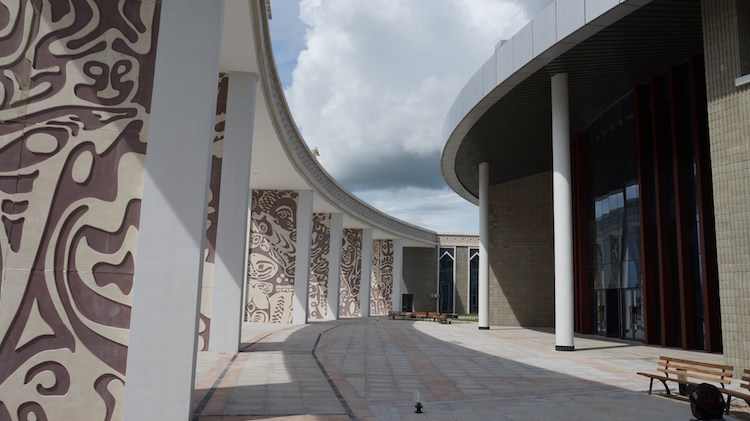Analysis by Ramesh Jaura
BERLIN | BRUSSELS (IDN) – Perhaps it would be an exaggeration to say that the world would never be the same again when leaders from the 79 countries of the African, Caribbean and Pacific (ACP) Group of States conclude their three-day “pivotal Summit” on June 1 in Port Moresby, Papua New Guinea (PNG).
But top echelons of the bloc are determined to turn it into “a watershed event” that would discuss the future of the ACP Group as a revitalised cohesive force advocating the interests of its member states in the international arena.
They want it to provide the necessary political mandate to reorient the organisation, and offer a basis for more concrete engagement in discussions on the future of ACP-EU relations after 2020 when the Cotonou Agreement ends. The accord is named after the largest city and economic centre of Benin. Formal negotiations for a follow up framework of the Cotonou Agreement are expected to commence in 2017/2018.
“There is a real opportunity here to make history, in contributing to the global development agenda by enhancing the voice of developing and marginalised countries on the international stage,” says ACP Secretary General Dr. Patrick I. Gomes.
“The ACP Group seeks to enhance its capacity as a hub for South-South and Triangular cooperation, leveraging its large membership and its long experience in international cooperation amongst member states as well as with the European Union,” he adds.
Gomes has been calling for high levels of engagement from the Group’s leaders so that the eighth Summit offers political support for “the strategic reorientation of the organisation, and a basis from which future relations with the 28-nation European Union post-2020 can be addressed more concretely”.
“This is a very important event, taking place at an important time in the history of the ACP Group. The future of the organisation, in terms of where it goes after the expiration of the Cotonou Agreement (the comprehensive agreement between the ACP Group and its main development partner, the European Union) in 2020 is a fundamental issue with flow-on consequences… It’s about legacy creation,” says PNG’s Minister of Foreign Affairs, Rimbink Pato.
“Papua New Guinea regards it as a privilege and an honour to welcome representatives from all the ACP States, so that we can address together the challenges that we face as individual members, as a group, and globally, especially in terms of the 2030 Agenda for Sustainable Development,” adds Pato.
As host nation, Papua New Guinea have developed priority areas/sectors for the Summit under the theme ‘Repositioning the ACP-Group to the Challenges of the Sustainable Development’.
These priorities include: equitable and sustainable development for ACP people; enhancing the role of the ACP Group in global governance for development; and peace, security and stability as essential elements for sustainable development. This from the perspective of the Pacific Island Countries includes climate change.
The ACP leaders will also have on table the Final Report of the Eminent Persons Group (EPG), chaired by former President of Nigeria Chief Olusegun Obasanjo, on the future of the Group. The report is titled ‘A New Vision for our Future – A 21st century African, Caribbean and Pacific Group delivering for its Peoples’.
Since its formation in 2013, the EPG has held consultations in all ACP regions with various strata of society, and conducted in-depth research, culminating in a number of recommendations for reform, in order to reorient the ACP Group to deliver more effectively on the development ambitions of its member states.
The ACP Group – comprising 48 countries from Sub-Saharan Africa, 16 from the Caribbean and 15 from the Pacific – was created by the Georgetown Agreement in 1975.
The Summit in PNG comes nearly four weeks after the 103rd session of the ACP Council of Ministers in Dakar, Senegal, that concluded on April 28. The Ministers agreed on a resolution on the important issue of Economic Partnership Agreements (EPAs) between the ACP regions and the European Union.
The Caribbean is the only region to have ratified a full regional agreement, which is currently being implemented. Three others – West Africa, East African Community, and the Southern Africa Development Community (SADC) EPA group – have signed.
The Council of ACP Ministers repeated previous appeals for flexibility from the EU so that outstanding negotiations can be concluded for mutual benefit, and called for the EU to resume the stalled negotiations with the regions of Central Africa, Eastern and Southern Africa (ESA) and the Pacific, at the ministerial level.
They also highlighted the need for predictable, additional and adequate financial resources and technical assistance to support the implementation phase of EPAs.
The Council encouraged Member States to participate at the upcoming UNCTAD XIV, the 14th United Nations Conference on Trade and Development from July 17-22 2016 in Nairobi, Kenya. They committed to establish a stronger working relationship with UNCTAD, with the aim of harnessing trade as an engine for sustainable and inclusive development. [IDN-InDepthNews – 21 May 2016]
IDN is flagship agency of the International Press Syndicate.
Image: Venue of 8th ACP Conference in Port Moresby, Papua New Guinea.
2016 IDN-InDepthNews | Analysis That Matters|
Send your comment | Subscribe to IDN newsletter
Follow us on Twitter and Facebook:
http://twitter.com/InDepthNews
http://www.facebook.com/IDN.GoingDeeper

